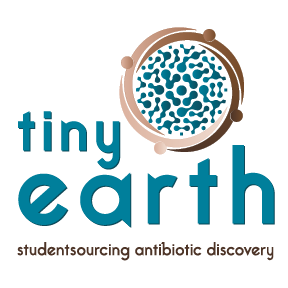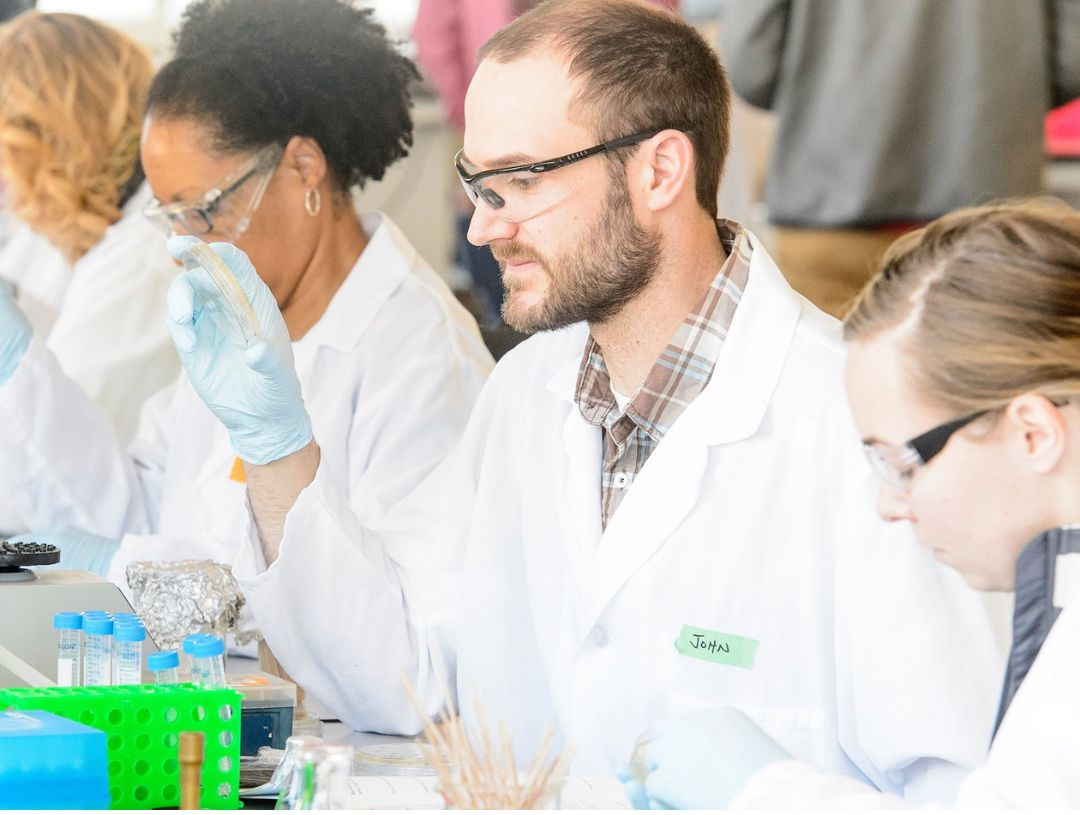The Tiny Earth Network and its vision, formed in 2012 and established as we know it in 2018 by founder Dr. Jo Handelsman, has been a challenging and rewarding journey. The Vilas Research Professor and Director of the Wisconsin Institute for Discovery has diverse experiences in scientific research, ranging from publications in microbial communications and metagenomics, teaching and mentoring, to education and diversity in STEM. The creation of Tiny Earth, as a network and a CURE, is inspired by many of Dr. Handelsman’s work: persistence of diverse students in science, addressing a critical issue in public health (antibiotic resistance), and support for accessible training and instruction.
Our roots are not only grounded in the headquarters of Tiny Earth at the Wisconsin Institute for Discovery, but dispersed across the globe. Our instructors are the backbone of Tiny Earth, and they have reinterpreted these values in their own, unique research and teaching practices. Their dedication to Tiny Earth, education, and their students not only keeps our network alive, but extends the value of education beyond science to highlight pressing issues in their academic communities. Below, we highlight a few of our Tiny Earth Partner Instructors’ (TEPIs) great achievements and recent endeavors.
Rapid Pivot of CURE Wet Lab to Online with the Help of Instructor Communities
Enid González-Orta, Deb Tobiason, Brittney J Gasper, Aarti Raja, and Sarah Miller
Journal of Microbiology & Biology Education (2022). https://doi.org/10.1128/jmbe.00250-21
In the face of the COVID-19 pandemic, an involved group of instructors came together and worked quickly to adapt the entire Tiny Earth curriculum to online instruction. The Pivot-to-Online working group met weekly to organize support for instructors struggling to teach the wet lab virtually. In their recent publication, TEPIs and the Tiny Earth Executive Director ave detailed the framework for new and lasting modes of teaching through instructor communities of practice and high-structured course design.
Educational Activities for Students and Citizens Supporting the One-Health Approach on Antimicrobial Resistance
Massimiliano Marvasi, Lilliam Casillas, Alberto Vassallo, and Diane Purchase
Antibiotics (2021)
Tiny Earth Partner Instructor, Dr. Lilliam Casillas at University of Puerto Rico-Humacao and her international team published in the Antibiotics journal from MDPI. Their article demonstrates how to leverage education to mitigate the antibiotic resistance crisis. See how Tiny Earth plays a role in their approach and antimicrobial education and stewardship.
Experiential Learning in Laboratory Courses: Reflections on the Tiny Earth Curriculum.
Yvonne Sun
Diverse Pedagogical Approaches to Experiential Learning, Volume II (2022)
Yvonne Sun has been a TEPI since 2018, and is the co-chair of our Tiny Earth Workshop Committee. Dr. Sun has been a crucial component to bringing accessible and engaging professional development to Tiny Earth instructors and has continued to lead these efforts beyond the peak of the COVID-19 pandemic when the workshop committee was formed. Read about Dr. Sun’s experience and lessons in teaching the Tiny Earth CURE at the University of Dayton, Ohio in her recent chapter published in Diverse Pedagogical Approaches to Experiential Learning, Volume II.
High-Impact Practices for Transforming Online Learning
Theresa Conefrey and Davida S. Smyth
Journal of Higher Education Theory and Practice 21(6) (2021)
Davida Smyth has been a Tiny Earth Partner Instructor since 2019 and has made great contributions to Tiny Earth and beyond. Last year, Dr. Smyth and her colleague described the importance of High-Impact Practices in online learning for student engagement and learning, mentioning Tiny Earth. Additionally, Dr. Smyth contributed as an editor on this article about Tiny Earth in Valencia (Bueso-Bordils et al, 2020) and was recently featured amongst colleagues in the New York Times for findings on Omicron presence in New York City wastewater. Register for the virtual 2022 Tiny Earth Summer Symposium to hear from Dr. Smyth on the Research Paths and Careers – Spotlight on Wastewater Epidemiology and Microbiology panel!
AJEDI in Science: Leveraging instructor communities to create antiracist curricula
Sarah Miller, Jennifer Kerr, and Jo Handelsman
Journal of Microbiology & Biology Education (In press). https://doi.org/10.1128/jmbe.00248-21
In response to the social unrest of 2020, the Tiny Earth community expanded the traditional DEI framework to include antiracism (A) and justice (J) as a means of highlighting the role of power dynamics, the historical impacts of privilege, and the legacies of racism in instructional design and learning environments. Since then, we have made changes in our curriculum and training to help guide instructors in upholding these principles that are critical to students’ and instructors’ identity and sense of belonging in STEM. Stay tuned for publication in the Journal of Microbiology & Biology Education.
Have a recent publication or update regarding Tiny Earth curriculum, research, or teaching? Have exciting news to share with the network? We would love to hear from you! Email tinyearth@wid.wisc.edu.
Written by Trang Tran, Tiny Earth Administrative Assistant
April 4, 2022


